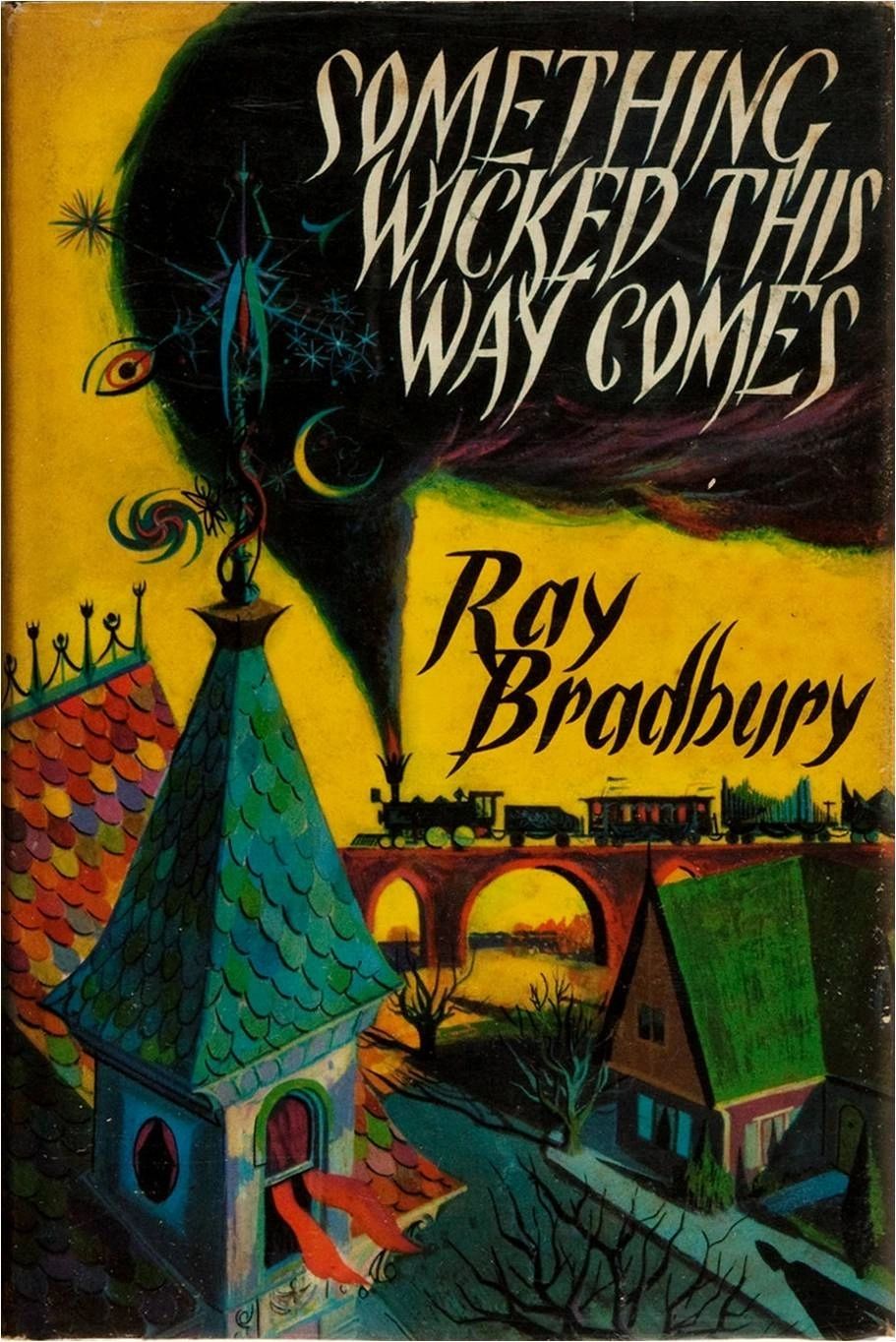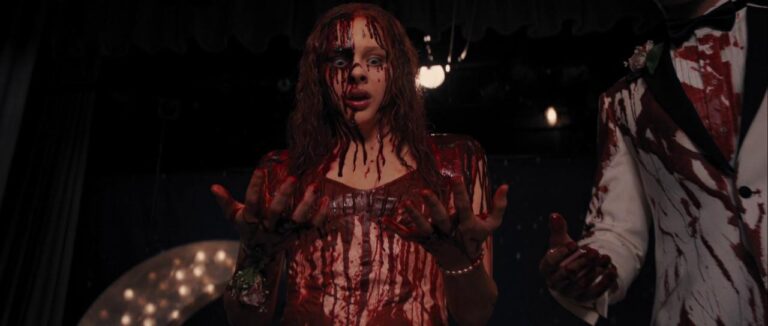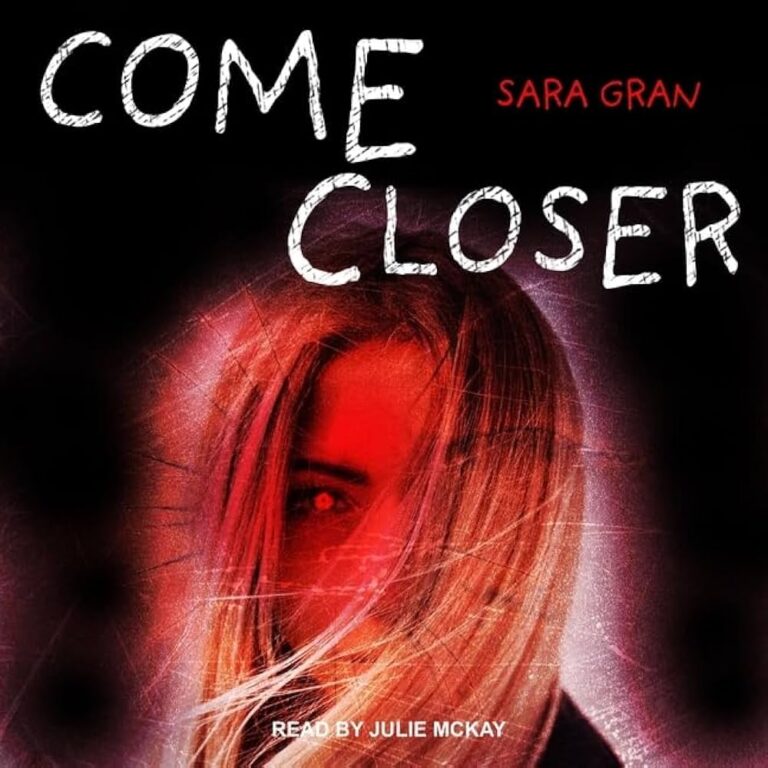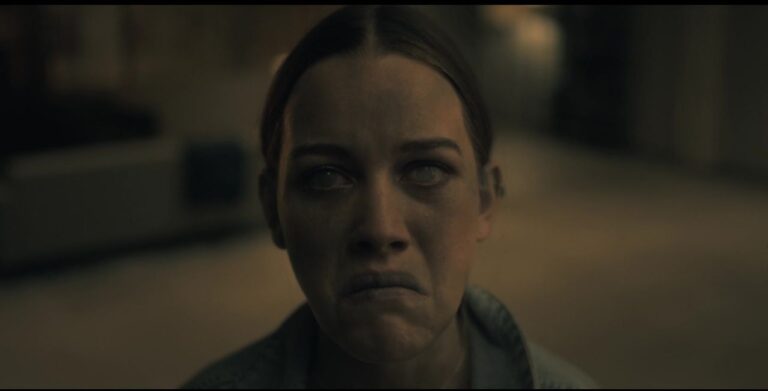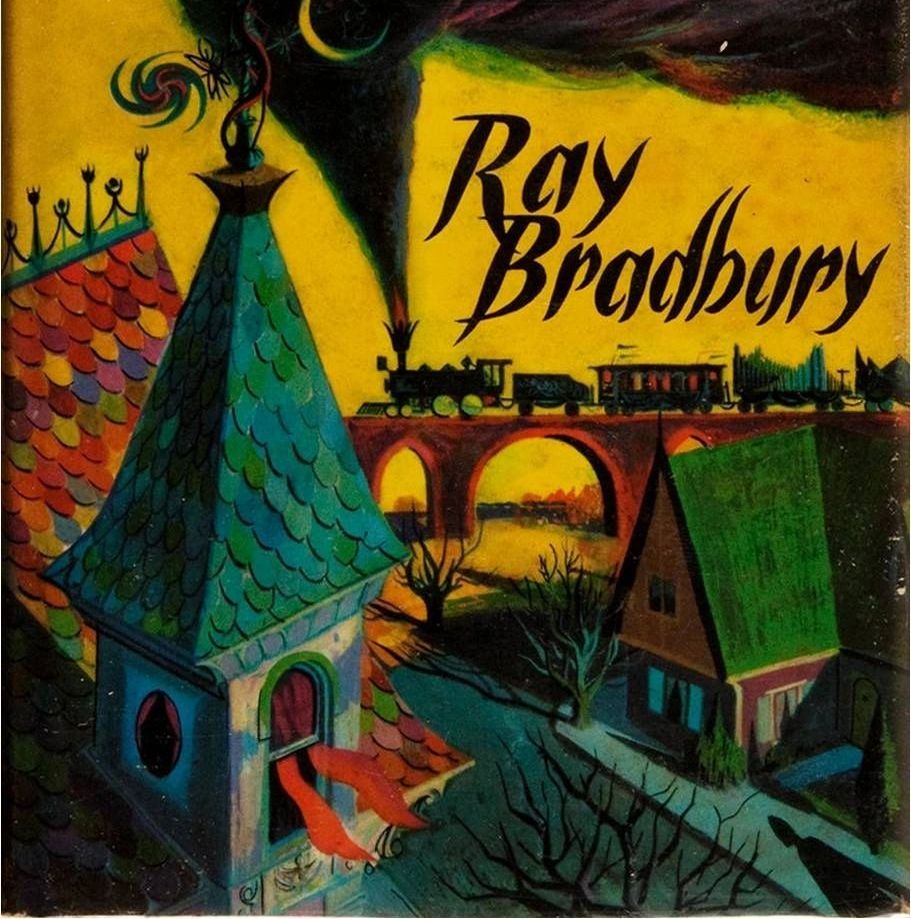
Okay, so let’s not pretend this is just some creepy carnival story. Something Wicked This Way Comes, for all the smoke and mirrors, witches and calliopes, is really about something way heavier. It’s about fear, yeah, but not the monster under the bed kind. It’s the kind of fear that sits with you in the quiet parts of your life. The fear of aging. Of missing out. Of wanting too much.
Two Boys, One Autumn, and the Fear of Becoming Men
At the center of it are Will Halloway and Jim Nightshade, two 13 year olds who are technically the same age but mentally living on opposite sides of a line. Will’s careful, cautious. Jim?… Well, he’s already halfway out the door into adulthood. He wants to grow up. Wants to leave behind this kid thing and grab the world by the throat.
And then the carnival shows up.
But this isn’t a story where the bad guys are just evil because it’s fun. The carnival, Cooger & Dark’s Pandemonium Shadow Show, is seductive. It offers. It sees what you want most, and it tells you: “Hey, we can give you that. Youth. Power. Beauty. Time.“
That’s a trap. That’s THE trap.
The Carousel and the Fantasy of Control
The carousel is the book’s psychological core. One ride forward, you age. One ride back, you get younger. The whole town is tempted by it. Who wouldn’t be?
But Bradbury isn’t subtle about what he thinks of that kind of shortcut.
It’s a lie. You don’t get to skip the pain and still keep your soul intact.
Everyone who tries ends up hollowed out. The Dust Witch, Mr. Dark, the lightning rod salesman, each of them tried to bend time, cheat regret, dodge the hard parts. And each one paid. Not in blood, but in something way deeper: identity.
Charles Halloway and the Psychology of Regret
Now Charles Halloway, Will’s dad, is the real emotional anchor here. The guy works as a janitor in the library, drowning in guilt and regret. Feels like he missed his shot. He’s watching his son grow up, and all he can think is, “Where the hell did my life go?”
But when the carnival tempts him with youth, he doesn’t take it. He thinks about it. He even walks to the edge. But he pulls back. Because, and this is where the book punches you in the chest, he realizes that the pain, the time, the living, is what made him who he is. And that the only way forward is through.
There’s this moment where Charles says, “Sometimes a man can learn more from a child than a child can learn from a man.” That shakes the reader. Because that’s what Something Wicked is really about: learning how to live with your fear instead of running from it.
The Carnival Is Us
Let me point this out, if you already haven’t figured, the carnival isn’t some supernatural invader. It’s us. It’s the part of us that wants to rewind the clock. The part that whispers, “You should be younger, stronger, prettier, richer.” It feeds on that little voice inside that says, “I’m not enough.”
And Bradbury’s point is that this voice is a liar.
The villains in the book aren’t the evil, they’re people who gave in. They let that voice take the wheel. And in doing so, they lost themselves.
The Psychology of Joy as Rebellion
One of the wildest parts of the book is how it frames joy as a weapon. When Will and Charles start laughing the carnival hates it. It’s almost as if joy shortcircuits the whole machine.
Because joy isn’t passive. It’s defiant. It says: “Yeah, I’ve got wrinkles, and scars, and memories I can’t fix. But I’m here. And that’s enough.”
That’s revolutionary. In a culture that sells us insecurity every day, Bradbury is fighting back, thinking: “What if we just… stopped believing the lie?”
At The End, It’s All About Choice
So yeah, the book is creepy. But the real horror isn’t the carnival. It’s what it reflects. It’s that moment you look in the mirror and wonder if time has already passed you by. It’s the ache in your chest when you want to fix the past. Or fast-forward the present. Or erase the parts that hurt.
But Bradbury is clear. You can’t. And that’s okay.
Because living means being scared sometimes. It means making mistakes. It means aging, losing, growing. It means facing the dark and still choosing to laugh anyway.
And that? That’s the real magic.
